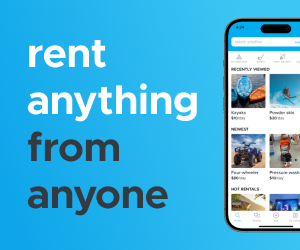Digital Afterlife Law Proposed
Who gets your bitcoins when you die? Can you pass on your movie and music libraries, or your apps? And are your heirs entitled to get into your email or Facebook accounts? These are not hypothetical questions, now that digital assets and content are part of everyday life.
In the run up to the new legislative session, state lawmakers are talking about some of the bills they’re planning to introduce. Last week, Sen. Glenn Wakai told a local group that he was thinking of supporting the development of community makerspaces in public libraries. And today, his counterpart in the House, Rep. Angus McKelvey, told Hawaii News Now that he was drafting a bill that would “protect your digital assets.”
Hawaii News Now – KGMB and KHNL
On the Bitcoin front, I’m not sure if it’s exactly true that online currency holdings don’t go to your heirs, since it’s most assuredly “real money” (albeit with widely fluctuating value). Like any other asset, I think it can be bequeathed or donated or battled over… it’s just technically difficult to do.
Still, cryptocurrencies are a new thing, and new things often inspire new laws, and last year Delaware became the first state to officially recognize the inheritance of digital assets like Bitcoin. It’s not a stretch to see iTunes music libraries added to such a list, even though the license terms under which music and movies are purchased usually disallow the transfer of ownership.
It’s the other side of the law, both Delaware’s and apparently the one Rep. McKelvey is considering, that gets tricky.
The question of handling a deceased person’s online accounts has been around nearly as long as the internet. It was ten years ago that the family of a fallen soldier took Yahoo to court to get access to the dead man’s email account. Facebook has had a specific process to handle the accounts of users who have passed away, turning their profile pages into special memorial pages. Google has set up an Inactive Account Manager that lets you plan ahead for the possibility that you stop using Google (whether due to death or the next big thing).
But it’s still messy. On one hand, you have grieving families that feel a dead loved one’s social media accounts are priceless artifacts, and that seeing those profiles and all that content deleted is just another painful blow. On the other hand, without any opinion or intent expressed by the person who passed away, getting into or taking over their accounts could be seen as a major invasion of privacy.
And what about the privacy of the people with whom the deceased exchanged emails? Or snapchat photos? If a beloved doctor dies, do her children get to read all her files, her Evernote notes from conversations she had with patients?
“People live with personal information that they do not wish to share with, say, their parents or their significant others,†Electronic Frontier Foundation analyst Adi Kamdar told Stateline. “The best course of action should be to respect this decision, even after death, unless the deceased takes steps to allow their estate’s administrator access to their email.â€
Obviously, if you outlined in your will exactly what you wanted to be done with your digital assets and accounts, much of this debate would be moot. The whole probate court system is designed to interpret a dead person’s wishes, or intervene when those wishes are in dispute.
But since most people die without making arrangements for important, tangible things like children, real estate, and bank accounts, it seems even more unlikely that the average person will think to add a Facebook clause to their last will and testament. Hence, bills like the one Rep. McKelvey is considering.
The Delaware bill was based on a model law from by the Uniform Law Commission, which has a whole committee dedicated to developing policy on Fiduciary Access to Digital Assets. There’s an effort to get a law passed in all 50 states, and it looks like Hawaii’s turn is coming up.
P.S. It was cool to be included in Tim Sakahara’s story, since it may be one of his last. It was just announced this morning that he was leaving Hawaii News Now for a job with the state.









2 Responses
[…] digital afterlife presents difficult questions, though, as handing over a dead person’s Facebook account may […]
[…] digital afterlife presents difficult questions, though, as handing over a dead person’s Facebook account may […]